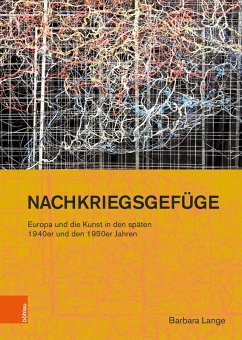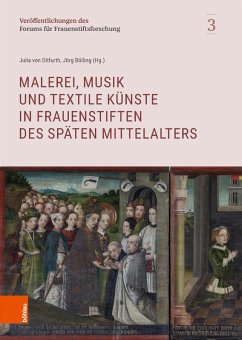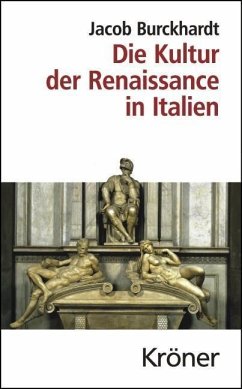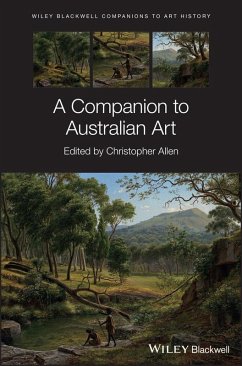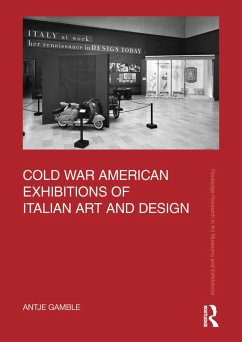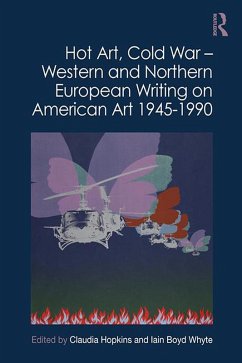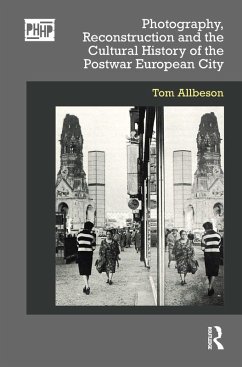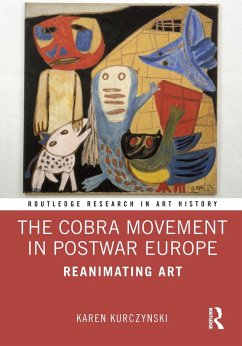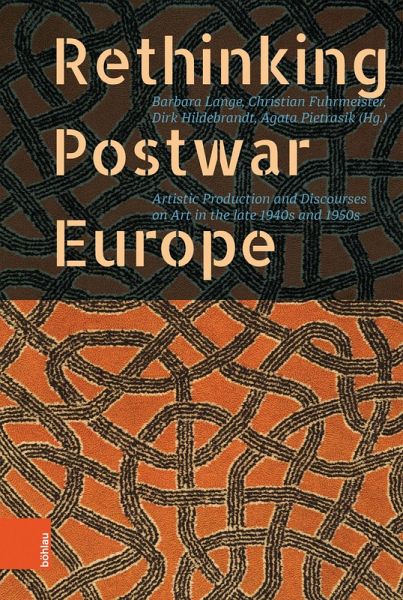
Rethinking Postwar Europe (eBook, PDF)
Artistic Production and Discourses on Art in the late 1940s and 1950s
Redaktion: Lange, Barbara; Pietrasik, Agata; Hildebrandt, Dirk
Versandkostenfrei!
Sofort per Download lieferbar
45,00 €
inkl. MwSt.
Weitere Ausgaben:

PAYBACK Punkte
0 °P sammeln!
The book "Rethinking Postwar Europe" offers an in-depth insight into the largely unexplored topic of artistic practices in the 1940s and 1950s in Europe which until recently had been obscured by ideologies of the Cold War. Thanks to the authors' diverse methodological backgrounds, the volume presents - for the first time - a comprehensive multilayered narrative, focusing on the complexities and entanglements in the artistic field. Instead of assessing the postwar period in the traditional way as divided by the Iron Curtain, the contributions investigate processes of contact, interaction, disse...
The book "Rethinking Postwar Europe" offers an in-depth insight into the largely unexplored topic of artistic practices in the 1940s and 1950s in Europe which until recently had been obscured by ideologies of the Cold War. Thanks to the authors' diverse methodological backgrounds, the volume presents - for the first time - a comprehensive multilayered narrative, focusing on the complexities and entanglements in the artistic field. Instead of assessing the postwar period in the traditional way as divided by the Iron Curtain, the contributions investigate processes of contact, interaction, dissemination, overlapping, and networking. Consequently, the analysis of a diversified European modernism in both its aesthetic and its socio-political dimension resonates with all the different case studies. In particular, the volume looks at how artists developed, designed and (re)negotiated identities and discourses, and sheds new light on the power of art - and creative powers in general - in a postwar setting of mutilations, losses, and devastations.
Dieser Download kann aus rechtlichen Gründen nur mit Rechnungsadresse in A, B, BG, CY, CZ, D, DK, EW, E, FIN, F, GR, H, IRL, I, LT, L, LR, M, NL, PL, P, R, S, SLO, SK ausgeliefert werden.




